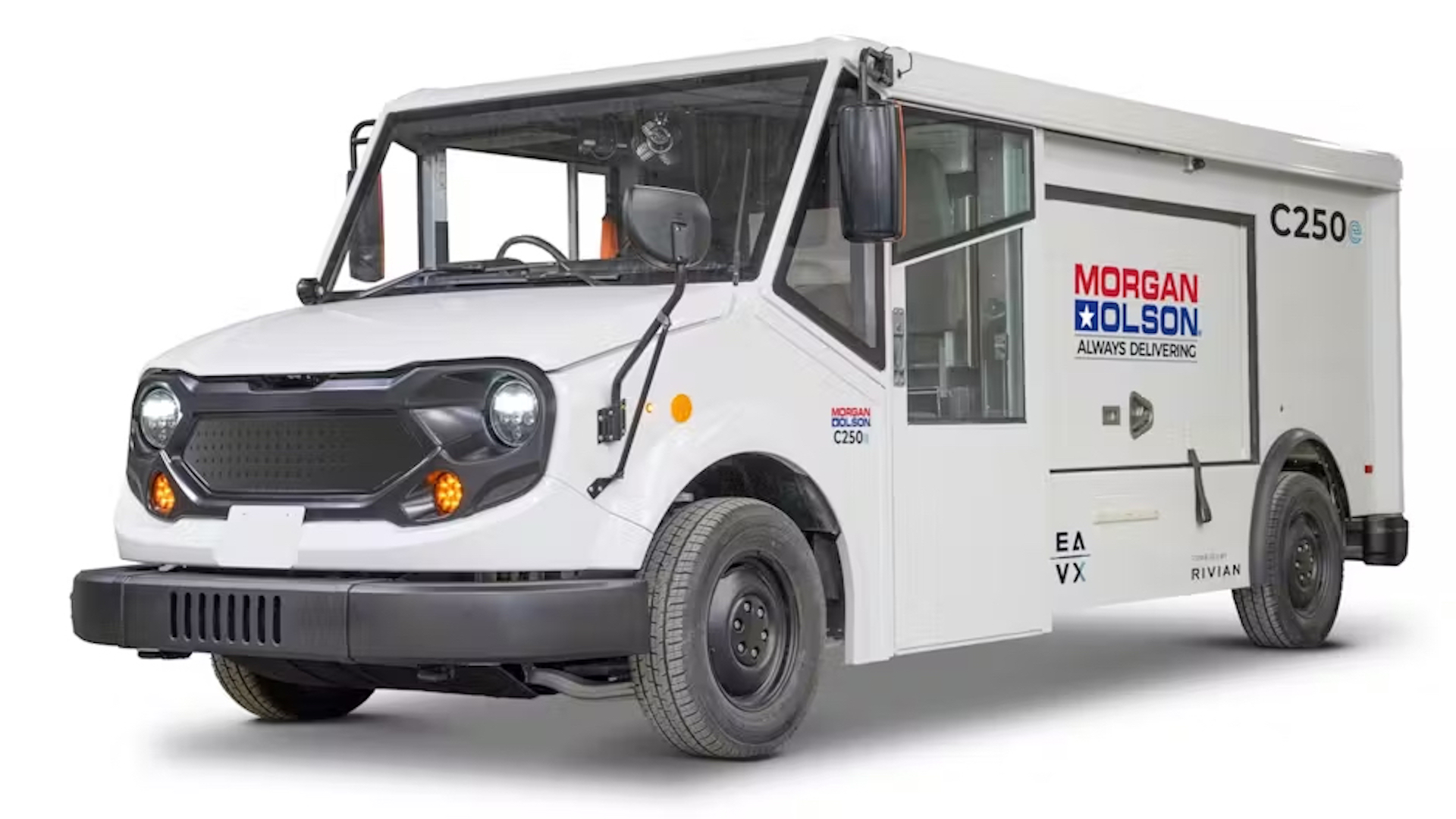

Rivians so far have all shared a clean, rounded aesthetic that you expect of consumer electronics. But Rivian can do hard-lined and ghoulish too, as in the case of a newly revealed commercial step-van that may soon be seen across North America.
The van you see here—which looks like an angry-eyed Jeep Wrangler that went to anger management class—is reported by Fleet Owner to be a collaboration between Rivian and major commercial vehicle producer Morgan Olson. That’s the same company that made the USPS’s Grumman LLV mail trucks, albeit when it was called Grumman Olson. It’s also owned by a commercial vehicle conglomerate (JB Poindexter & Co) that counts Fedex and UPS among its customers, so there’s a good chance you’ve seen this exact C250 step-van body before. Just without this face, and no Rivian Amazon van underneath.

That’s right, this thing is based on the Rivian Commercial Van chassis, with its 100 kilowatt-hour LFP battery and Rivian interface and software stack. It’s been adapted into the Morgan Olson C250E, which will be used by Canada Post to deliver packages and mail around cities in the Great White North. That’s also why it’s right-hand drive, if you hadn’t noticed that yet.
Because of its connections to some of the United States’ biggest package carriers, there seems to be a good chance the C250E sees service stateside too. Or at least, another Rivian-powered oddity, because this step-van might be only the first of many vehicles offered under the partnership.
“We expect to put [the Rivian chassis] under a number of bodies or develop prototypes with individual customers who will be interested in the combination of body technology,” said John Poindexter, CEO of JB Poindexter & Co, to Fleet Owner.
Some potential applications could reportedly include commercial vehicles with gross weight ratings under 10,000 pounds, such as grocery delivery vans. Tapping into such a broad market may also explain why Rivian reportedly wanted out of its contract with Amazon, which could have limited the van market growth it reportedly seeks. With demand for premium EVs plateauing and the R2 still years from launch, Rivian can’t afford to say no to new streams of revenue—even if the end product ain’t a looker.
Got a tip or question for the author? You can reach them here: james@thedrive.com